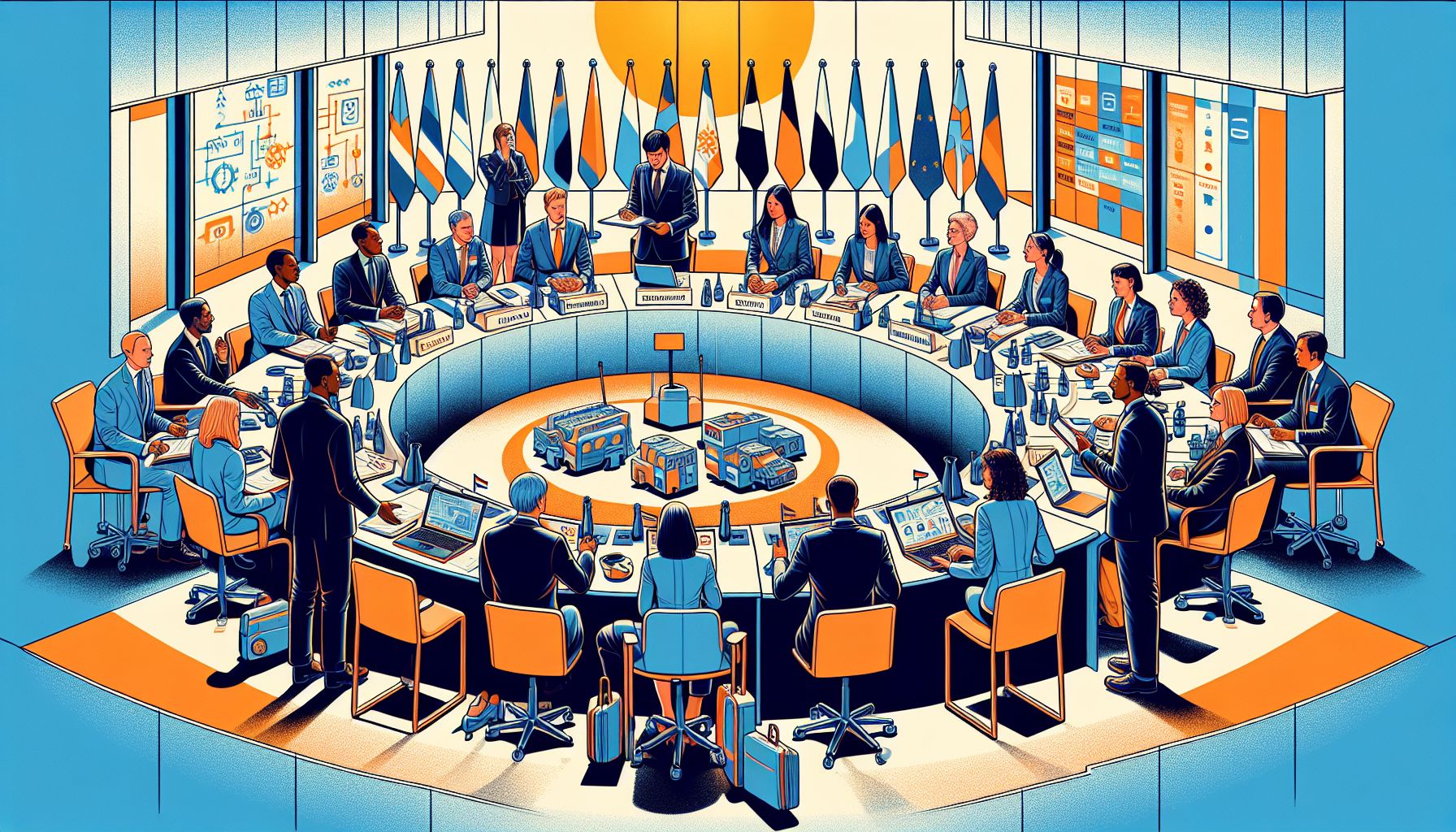EU Ministers Tackle Electric Vehicle Transition and AI Impact in Budapest

Budapest, Thursday, 11 July 2024.
EU Competitiveness Ministers met in Budapest to address the challenges of electric vehicle adoption and the influence of artificial intelligence on European competitiveness. The discussions focused on accelerating EV infrastructure and mitigating market fragmentation, with implications for future EU innovation policies.
Accelerating Electric Vehicle Adoption
During the meeting, the ministers emphasized the urgency of accelerating the adoption of electric vehicles (EVs) across the European Union. National Economy Minister Márton Nagy highlighted the need for a comprehensive roadmap to facilitate this transition, considering the impending 2035 ban on the production of internal combustion engines. The consensus among delegates was clear: expanding the charging infrastructure is pivotal to supporting the widespread use of EVs. However, the approaches to subsidies for EVs varied among member states, prompting calls for unified demand- and supply-side support at the EU level.
Challenges and Opportunities in AI
Artificial intelligence (AI) was another major topic at the meeting, with discussions centering on its potential to transform European competitiveness. Marios Panayides, Permanent Secretary of the Ministry of Energy, Trade and Industry of Cyprus, stressed that AI’s impact on economies could be catalytic. He urged the EU to adopt swift measures to help businesses, especially Small and Medium-Sized Enterprises (SMEs), leverage AI technologies. The need for policies that bridge the competitiveness gap with global leaders such as the United States and China was also underscored.
Hungary’s Stance on Chinese EV Tariffs
A point of contention during the meeting was the EU’s stance on tariffs against Chinese EV manufacturers. National Economy Minister Márton Nagy expressed Hungary’s strong opposition to these tariffs, arguing that protectionism is not the solution. Instead, he advocated for increased competition, noting that European battery manufacturers currently struggle to match the scale, cost, and efficiency of their South Korean and Chinese counterparts. The localization of Chinese EV makers in Europe, which began before the tariff announcements, further complicates the issue.
Implications for the Netherlands
The outcomes of the Budapest meeting are expected to significantly influence innovation policies in the Netherlands. With a strong focus on both EV infrastructure and AI, the Netherlands may look to align its national strategies with the broader EU roadmap. This alignment could foster a more cohesive approach to addressing the challenges and opportunities presented by these technological advancements.
Next Steps and Proposals
Concrete proposals, incorporating insights from industry insiders and decision-makers, are set to be published soon. These proposals will outline specific actions to advance EV adoption and AI integration across the EU. The anticipated vote on making the Chinese EV tariffs permanent, scheduled for late October or early November, will also be a critical juncture for EU trade policies.

